
Deux suspects liés à l'attaque meurtrière du 20 novembre contre l'hôtel Radisson à Bamako ont été arrêtés hier par les forces spéciales maliennes, ont indiqué à l'Afp des sources de sécurité maliennes.
" Deux suspects liés à l'attaque la semaine dernière de l'hôtel Radisson (Blu) viennent d'être arrêtés, ils sont actuellement en train d'être interrogés ", a affirmé une première source de sécurité, précisant que les arrestations ont eu lieu à Bamako.
Cette information a été confirmée par une autre source de sécurité, qui a précisé : "C'est un téléphone qui a parlé. Il a conduit aux deux personnes arrêtées, je ne peux pas en dire plus". Aucun détail n'a pu être obtenu dans l'immédiat sur l'identité ou la nationalité des suspects, ni s'il s'agit de complices ou d'éventuels commanditaires.
Le Radisson Blu a été attaqué le 20 novembre au matin par des hommes armés qui y ont retenu environ 150 clients et employés. Les forces maliennes, appuyées par des forces spéciales françaises et américaines et des agents de l'Onu, sont intervenues et ont "exfiltré" 133 personnes, selon le ministère malien de la Sécurité intérieure.
Vingt personnes (14 étrangers et 6 maliens, dont un gendarme) ont péri dans l'attaque, en plus de deux assaillants, selon le dernier bilan des autorités maliennes, comprenant également neuf blessés. Parmi les blessés, figurent "trois policiers et deux gendarmes. "Aucun blessé n'a de pronostic vital engagé", a déclaré hier le ministre malien de la Sécurité intérieure, le colonel Salif Traoré lors d'une intervention à l'Assemblée nationale. L'attentat a été revendiqué dès le 20 novembre par le groupe jihadiste de l'Algérien Mokhtar Belmokhtar, Al-Mourabitoune, "avec la participation" d'Al-Qaïda au Maghreb islamique (Aqmi).
Le 22 novembre, un groupe jihadiste du centre du Mali, le Front de libération du Macina (Flm), a également revendiqué l'attentat, exécuté, selon lui, "avec la collaboration d'Ansar Dine", groupe jihadiste de l'ex-chef rebelle touareg malien Iyad Ag Ghaly, par un commando de cinq membres dont "trois sont sortis sains et saufs". Des sources de sécurité avaient indiqué être sur la piste de complices des assaillants qui les ont aidés à se rendre à l'hôtel et à y perpétrer l'attaque. Le ministre Salif Traoré a assuré devant les députés qu'il n'y avait pas plus de deux assaillants.
L'attaque a été perpétrée par deux individus armés" de fusils d'assaut, des Kalachnikov de type AK-47, a précisé M. Traoré, " ils ont ouvert le feu depuis l'entrée de l'hôtel, à l'intérieur, dans le hall, au restaurant, dans différents couloirs. Ils ont tiré sur les gens sans discrimination".
"Nous avons neutralisé les deux terroristes. Au moment où je vous parle, nous n'avons pas de raison de penser qu'il y en avait plus", a-t-il dit, ajoutant, sans plus de précisions : "L'enquête est en cours, elle avance bien".
" Deux suspects liés à l'attaque la semaine dernière de l'hôtel Radisson (Blu) viennent d'être arrêtés, ils sont actuellement en train d'être interrogés ", a affirmé une première source de sécurité, précisant que les arrestations ont eu lieu à Bamako.
Cette information a été confirmée par une autre source de sécurité, qui a précisé : "C'est un téléphone qui a parlé. Il a conduit aux deux personnes arrêtées, je ne peux pas en dire plus". Aucun détail n'a pu être obtenu dans l'immédiat sur l'identité ou la nationalité des suspects, ni s'il s'agit de complices ou d'éventuels commanditaires.
Le Radisson Blu a été attaqué le 20 novembre au matin par des hommes armés qui y ont retenu environ 150 clients et employés. Les forces maliennes, appuyées par des forces spéciales françaises et américaines et des agents de l'Onu, sont intervenues et ont "exfiltré" 133 personnes, selon le ministère malien de la Sécurité intérieure.
Vingt personnes (14 étrangers et 6 maliens, dont un gendarme) ont péri dans l'attaque, en plus de deux assaillants, selon le dernier bilan des autorités maliennes, comprenant également neuf blessés. Parmi les blessés, figurent "trois policiers et deux gendarmes. "Aucun blessé n'a de pronostic vital engagé", a déclaré hier le ministre malien de la Sécurité intérieure, le colonel Salif Traoré lors d'une intervention à l'Assemblée nationale. L'attentat a été revendiqué dès le 20 novembre par le groupe jihadiste de l'Algérien Mokhtar Belmokhtar, Al-Mourabitoune, "avec la participation" d'Al-Qaïda au Maghreb islamique (Aqmi).
Le 22 novembre, un groupe jihadiste du centre du Mali, le Front de libération du Macina (Flm), a également revendiqué l'attentat, exécuté, selon lui, "avec la collaboration d'Ansar Dine", groupe jihadiste de l'ex-chef rebelle touareg malien Iyad Ag Ghaly, par un commando de cinq membres dont "trois sont sortis sains et saufs". Des sources de sécurité avaient indiqué être sur la piste de complices des assaillants qui les ont aidés à se rendre à l'hôtel et à y perpétrer l'attaque. Le ministre Salif Traoré a assuré devant les députés qu'il n'y avait pas plus de deux assaillants.
L'attaque a été perpétrée par deux individus armés" de fusils d'assaut, des Kalachnikov de type AK-47, a précisé M. Traoré, " ils ont ouvert le feu depuis l'entrée de l'hôtel, à l'intérieur, dans le hall, au restaurant, dans différents couloirs. Ils ont tiré sur les gens sans discrimination".
"Nous avons neutralisé les deux terroristes. Au moment où je vous parle, nous n'avons pas de raison de penser qu'il y en avait plus", a-t-il dit, ajoutant, sans plus de précisions : "L'enquête est en cours, elle avance bien".





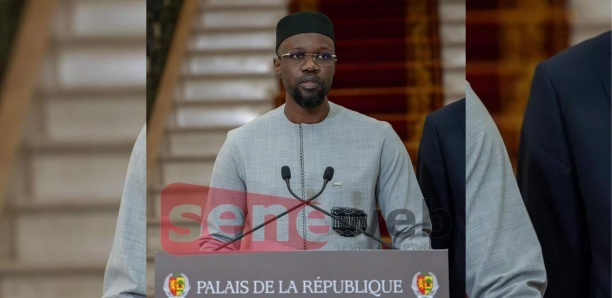
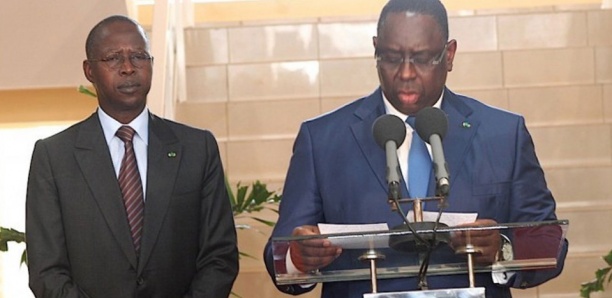

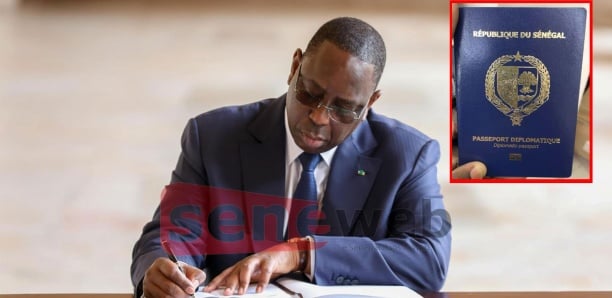

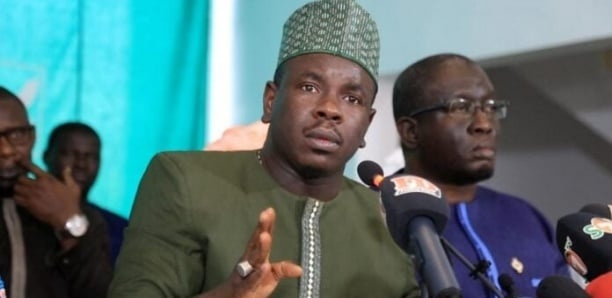

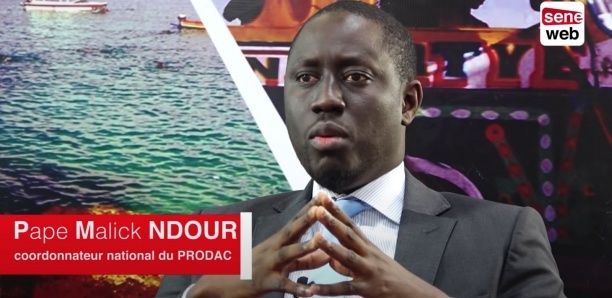

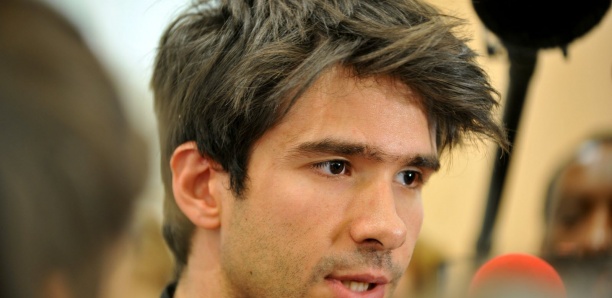




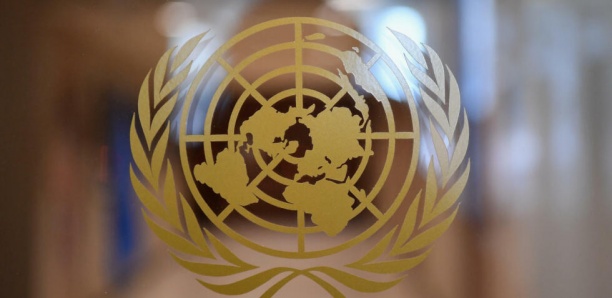

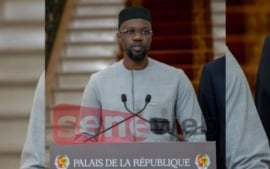
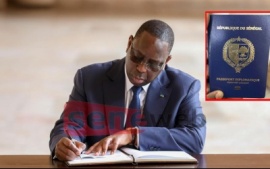

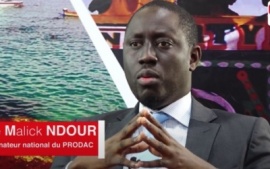
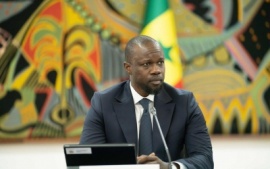
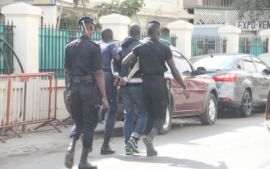
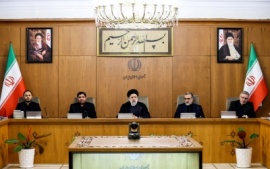
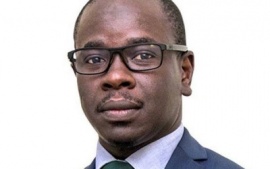
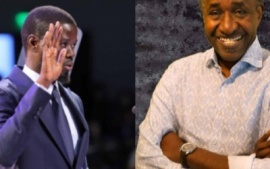

6 Commentaires
Anguille Sous Roche
En Novembre, 2015 (13:07 PM)REVEILLEZ VOUS
Salaupards Occidentaux
En Novembre, 2015 (13:38 PM)ils veulent arrêter la progression de la chine et de la Russie c'est malheureux, ils sont derrière tout cela ces occidentaux
Ils Nous Prennent Vraiment Pou
En Novembre, 2015 (14:14 PM)But why these men? And why now?
To answer these questions, one must have an understanding of the roles of both these companies in Mali and, at the larger level, the activities of China and Russia in Mali. Moreover, the targeted killing should be seen in light of the growing assertiveness of both countries against terrorism in Syria and internationally. Considering the strategic partnership between the two countries – a partnership that is expanding seemingly every day – it seems that the fight against terrorism has become yet another point of convergence between Moscow and Beijing. In addition, it must be recalled that both countries have had their share of terror attacks in recent years, with each having made counter-terrorism a central element in their national security strategies, as well as their foreign policy.
And so, given these basic facts, it becomes clear that the attack in Mali was no random act of terrorism, but a carefully planned and executed operation designed to send a clear message to Russia and China.
The Attack, the Victims, and the Significance
On Friday November 20, 2015 a team of reportedly “heavily armed and well-trained gunmen” attacked a well known international hotel in Bamako, Mali. While the initial reports were somewhat sketchy and contradictory, in the days since the attack and siege that followed, new details have emerged that are undeniably worrying as they provide a potential motive for the terrorists.
It is has since been announced that three Chinese nationals were killed at the outset of the attack: Zhou Tianxiang, Wang Xuanshang, and Chang Xuehui.
Aside from the obviously tragic fact that these men were murdered in cold blood, one must examine carefully who they were in order to get a full sense of the importance of their killings. Mr. Zhou was the General Manager of the China Railway Construction Corporation’s (CRCC) international group, Mr. Wang was the Deputy General Manager of CRCC’s international group, and Mr. Chang was General Manager of the CRCC’s West Africa division. The significance should become immediately apparent as these men were the principal liaisons between Beijing and the Malian government in the major railway investments that China has made in Mali. With railway construction being one of the key infrastructure and economic development programs in landlocked Mali, the deaths of these three Chinese nationals is clearly both a symbolic and very tangible attack on China’s partnership with Mali.
In late 2014, Mali’s President Ibrahim Boubacar Keita traveled to China to attend the World Economic Forum in Tianjin. On the sidelines of the forum the Malian president sealed a number of critical development deals with the Chinese government, the most high-profile of which were railway construction and improvement agreements. Chief among the projects is the construction of an $8 billion, 900km railway linking Mali’s capital of Bamako with the Atlantic port and capital of neighboring Guinea, Conakry. The project, seen by many experts as essential for bringing Malian mineral wealth to world markets, is critical to the economic development of the country. Additionally, CRCC was also tapped to renovate the railway connecting Bamako with Senegal’s capital of Dakar, with the project carrying a price tag of nearly $1.5 billion.
These two projects alone were worth nearly $10 billion, while a number of other projects, including road construction throughout the conflict-ridden north of the country, as well as construction of a much needed new bridge in gridlock-plagued Bamako, brought the cumulative worth of the Chinese investments to near (or above) the total GDP for Mali ($12 billion in 2014). Such massive investments in the country were obviously of great significance to the Malian government both because of their economically transformative qualities, and also because they had solidified China as perhaps the single most dominant investor in Mali, a country long since under the post-colonial economic yoke of France, and military yoke of the United States.
It seems highly implausible, to say the least, that a random terror attack solely interested in killing as many civilians as possible would have as its first three victims these three men, perhaps three of the most important men in the country at the time. But the implausible coincidences don’t stop there.
Among the dead are also six Russians, all of whom are said to have been employees of the Russian commercial cargo airline Volga-Dnepr. While at first glance it may seem irrelevant that the Russian victims worked for an airline, it is in fact very telling as it indicates a similar motive to the killing of the Chinese nationals; specifically, Volga-Dnepr is, according to its Wikipedia page, “a world leader in the global market for the movement of oversize, unique and heavy air cargo…[It] serves governmental and commercial organizations, including leading global businesses in the oil and gas, energy, aerospace, agriculture and telecommunications industries as well as the humanitarian and emergency services sectors.” The company has transported everything from gigantic excavators to airplanes, helicopters, mini-factories, and power plants, not to mention heavy machines used in energy extraction.
This fact is significant because it is quite likely, indeed probable, that the airline has been transporting much of the heavy, oversized equipment being used by the Chinese and other developers throughout the country. In effect, the Russian crew was part of the ongoing economic development and foreign investment in the country. And so, their killing, like that of the CRCC executives, is a symbolic strike against Chinese and Russian investment in the country. And perhaps even more importantly, the attack was a symbolic attack upon the very nature of Sino-Russian collaboration and partnership, especially in the context of economic development in Africa and the Global South.
It would be worthwhile to add that Volga-Dnepr has also been involved in military transport services for NATO and the US until at least the beginning of the Ukraine conflict and Crimea’s reunification with Russia. Whether this fact has any bearing on the employees being targeted, that would be pure conjecture. Suffice to say though that Volga-Dnepr was no ordinary airline, but one that was integral to the entire economic development initiative in Mali. And this is really the key point: China and Russia are development partners for the former French colonial possession and US puppet state.
China, Russia, and Mali’s Future
China and, to a lesser extent, Russia have become major trading and development partners for Mali in recent years. Aside from the lucrative railroad and road construction projects mentioned above, China has expanded its partnerships with Mali in many other areas. For instance, in 2014 China gifted Mali a grant of 18 billion CFA (nearly $30 million) and an interest-free loan of 8 billion CFA (nearly $13 million). Additionally, China established a program that offers 600 scholarships to Malian students over the 2015-2017 period. Also, the Chinese government announced the construction of a training and educational center focused on engineering and the construction industry, as well as the completion of the Agricultural Technical Center in the city of Baguineda in Southern Mali, not far from the capital and population center of Bamako.
Of course, these sorts of Chinese offerings are only the tip of the iceberg as Beijing has also expanded its contracts with Mali in the transportation, construction, energy, mining, and other important sectors, including an agreement for China to construct at least 24,000 affordable housing units, making ownership of a decent home possible for many who would otherwise never have such an opportunity. Going further, as African Leadership Magazine reported in 2014:
Mali also relies on China to invest in new power plants to break the electricity crisis that is affecting the country. This is supposed to make available cheaper electricity for the industrial development…A hydroelectric dam will be built in the area of Dire in the North of the country; a hybrid power plant in Kidal in the North-East and another one in Timbuktu, which is in the North as well. Solar power plants will also be created in other parts of the country and all those infrastructures will be connected to the national grid of electricity… A factory of medicine production that is being constructed in the outskirts of the capital will be enlarged to be the largest in West Africa…More than 95 percent of the factory has been completed and it will be operating on January, 2015…Chinese banks that are not yet present in Mali are supposed to contribute to create small-scaled companies and industries.
To be sure, China is not offering such deals to Mali solely out of altruism and in the spirit of generosity; naturally China expects to enrich itself and ensure access to raw materials, resources, and markets in Mali now and in the future. This is the sort of “win-win” partnership forever being touted by China as the cornerstone of its aid and investment throughout Africa. Indeed, in many ways, Mali is a prime example of just how China operates on the continent. Rather than a purely exploitative investment model (the IMF and World Bank examples come to mind), China is engaging in true partnership. And, contrary to what many have argued (that China is merely a rival imperialist power in Africa), China’s activities in Africa are by and large productive for the whole of the countries where China invests, a few egregious bad examples aside.
China is a friend of Africa, and it has demonstrated that repeatedly throughout the last decade. And perhaps it is just this sort of friendship that was under attack in the Radisson Blu Hotel in Bamako.
Likewise Russia has been engaged in Mali, though certainly nowhere near the extent that China has. Russia was one of the principal contributors to the humanitarian relief effort in Mali after the 2012 coup and subsequent war against terror groups affiliated with Al-Qaeda. Russia provided much needed food, clothing, and basic medical aid, while also supplying more advanced, and essential, medical equipment to Malian hospitals desperately trying to cope with the flood of wounded and displaced people.
Additionally, Moscow became one of the major suppliers of weapons and other military materiel to Mali’s government in its war against terrorism in 2013. According Business Insider in 2013, Anatoly Isaikin, head of Russia’s state-owned arms exporter Rosoboronexport, “revealed that Moscow had recent military contacts with the government of Mali…He said small amounts of light weapons were already being delivered to Mali and that new sales were under discussion. ‘We have delivered firearms. Literally two weeks ago another consignment was sent. These are completely legal deliveries…We are in talks about sending more, in small quantities.’” ...................................................
Ils Nous Prennent Vraiment Pou
En Novembre, 2015 (15:36 PM)But why these men? And why now?
To answer these questions, one must have an understanding of the roles of both these companies in Mali and, at the larger level, the activities of China and Russia in Mali. Moreover, the targeted killing should be seen in light of the growing assertiveness of both countries against terrorism in Syria and internationally. Considering the strategic partnership between the two countries – a partnership that is expanding seemingly every day – it seems that the fight against terrorism has become yet another point of convergence between Moscow and Beijing. In addition, it must be recalled that both countries have had their share of terror attacks in recent years, with each having made counter-terrorism a central element in their national security strategies, as well as their foreign policy.
And so, given these basic facts, it becomes clear that the attack in Mali was no random act of terrorism, but a carefully planned and executed operation designed to send a clear message to Russia and China.
The Attack, the Victims, and the Significance
On Friday November 20, 2015 a team of reportedly “heavily armed and well-trained gunmen” attacked a well known international hotel in Bamako, Mali. While the initial reports were somewhat sketchy and contradictory, in the days since the attack and siege that followed, new details have emerged that are undeniably worrying as they provide a potential motive for the terrorists.
It is has since been announced that three Chinese nationals were killed at the outset of the attack: Zhou Tianxiang, Wang Xuanshang, and Chang Xuehui.
Aside from the obviously tragic fact that these men were murdered in cold blood, one must examine carefully who they were in order to get a full sense of the importance of their killings. Mr. Zhou was the General Manager of the China Railway Construction Corporation’s (CRCC) international group, Mr. Wang was the Deputy General Manager of CRCC’s international group, and Mr. Chang was General Manager of the CRCC’s West Africa division. The significance should become immediately apparent as these men were the principal liaisons between Beijing and the Malian government in the major railway investments that China has made in Mali. With railway construction being one of the key infrastructure and economic development programs in landlocked Mali, the deaths of these three Chinese nationals is clearly both a symbolic and very tangible attack on China’s partnership with Mali.
In late 2014, Mali’s President Ibrahim Boubacar Keita traveled to China to attend the World Economic Forum in Tianjin. On the sidelines of the forum the Malian president sealed a number of critical development deals with the Chinese government, the most high-profile of which were railway construction and improvement agreements. Chief among the projects is the construction of an $8 billion, 900km railway linking Mali’s capital of Bamako with the Atlantic port and capital of neighboring Guinea, Conakry. The project, seen by many experts as essential for bringing Malian mineral wealth to world markets, is critical to the economic development of the country. Additionally, CRCC was also tapped to renovate the railway connecting Bamako with Senegal’s capital of Dakar, with the project carrying a price tag of nearly $1.5 billion.
These two projects alone were worth nearly $10 billion, while a number of other projects, including road construction throughout the conflict-ridden north of the country, as well as construction of a much needed new bridge in gridlock-plagued Bamako, brought the cumulative worth of the Chinese investments to near (or above) the total GDP for Mali ($12 billion in 2014). Such massive investments in the country were obviously of great significance to the Malian government both because of their economically transformative qualities, and also because they had solidified China as perhaps the single most dominant investor in Mali, a country long since under the post-colonial economic yoke of France, and military yoke of the United States.
It seems highly implausible, to say the least, that a random terror attack solely interested in killing as many civilians as possible would have as its first three victims these three men, perhaps three of the most important men in the country at the time. But the implausible coincidences don’t stop there.
Among the dead are also six Russians, all of whom are said to have been employees of the Russian commercial cargo airline Volga-Dnepr. While at first glance it may seem irrelevant that the Russian victims worked for an airline, it is in fact very telling as it indicates a similar motive to the killing of the Chinese nationals; specifically, Volga-Dnepr is, according to its Wikipedia page, “a world leader in the global market for the movement of oversize, unique and heavy air cargo…[It] serves governmental and commercial organizations, including leading global businesses in the oil and gas, energy, aerospace, agriculture and telecommunications industries as well as the humanitarian and emergency services sectors.” The company has transported everything from gigantic excavators to airplanes, helicopters, mini-factories, and power plants, not to mention heavy machines used in energy extraction.
This fact is significant because it is quite likely, indeed probable, that the airline has been transporting much of the heavy, oversized equipment being used by the Chinese and other developers throughout the country. In effect, the Russian crew was part of the ongoing economic development and foreign investment in the country. And so, their killing, like that of the CRCC executives, is a symbolic strike against Chinese and Russian investment in the country. And perhaps even more importantly, the attack was a symbolic attack upon the very nature of Sino-Russian collaboration and partnership, especially in the context of economic development in Africa and the Global South.
It would be worthwhile to add that Volga-Dnepr has also been involved in military transport services for NATO and the US until at least the beginning of the Ukraine conflict and Crimea’s reunification with Russia. Whether this fact has any bearing on the employees being targeted, that would be pure conjecture. Suffice to say though that Volga-Dnepr was no ordinary airline, but one that was integral to the entire economic development initiative in Mali. And this is really the key point: China and Russia are development partners for the former French colonial possession and US puppet state.
China, Russia, and Mali’s Future
China and, to a lesser extent, Russia have become major trading and development partners for Mali in recent years. Aside from the lucrative railroad and road construction projects mentioned above, China has expanded its partnerships with Mali in many other areas. For instance, in 2014 China gifted Mali a grant of 18 billion CFA (nearly $30 million) and an interest-free loan of 8 billion CFA (nearly $13 million). Additionally, China established a program that offers 600 scholarships to Malian students over the 2015-2017 period. Also, the Chinese government announced the construction of a training and educational center focused on engineering and the construction industry, as well as the completion of the Agricultural Technical Center in the city of Baguineda in Southern Mali, not far from the capital and population center of Bamako.
Of course, these sorts of Chinese offerings are only the tip of the iceberg as Beijing has also expanded its contracts with Mali in the transportation, construction, energy, mining, and other important sectors, including an agreement for China to construct at least 24,000 affordable housing units, making ownership of a decent home possible for many who would otherwise never have such an opportunity. Going further, as African Leadership Magazine reported in 2014:
Mali also relies on China to invest in new power plants to break the electricity crisis that is affecting the country. This is supposed to make available cheaper electricity for the industrial development…A hydroelectric dam will be built in the area of Dire in the North of the country; a hybrid power plant in Kidal in the North-East and another one in Timbuktu, which is in the North as well. Solar power plants will also be created in other parts of the country and all those infrastructures will be connected to the national grid of electricity… A factory of medicine production that is being constructed in the outskirts of the capital will be enlarged to be the largest in West Africa…More than 95 percent of the factory has been completed and it will be operating on January, 2015…Chinese banks that are not yet present in Mali are supposed to contribute to create small-scaled companies and industries.
To be sure, China is not offering such deals to Mali solely out of altruism and in the spirit of generosity; naturally China expects to enrich itself and ensure access to raw materials, resources, and markets in Mali now and in the future. This is the sort of “win-win” partnership forever being touted by China as the cornerstone of its aid and investment throughout Africa. Indeed, in many ways, Mali is a prime example of just how China operates on the continent. Rather than a purely exploitative investment model (the IMF and World Bank examples come to mind), China is engaging in true partnership. And, contrary to what many have argued (that China is merely a rival imperialist power in Africa), China’s activities in Africa are by and large productive for the whole of the countries where China invests, a few egregious bad examples aside.
China is a friend of Africa, and it has demonstrated that repeatedly throughout the last decade. And perhaps it is just this sort of friendship that was under attack in the Radisson Blu Hotel in Bamako.
Likewise Russia has been engaged in Mali, though certainly nowhere near the extent that China has. Russia was one of the principal contributors to the humanitarian relief effort in Mali after the 2012 coup and subsequent war against terror groups affiliated with Al-Qaeda. Russia provided much needed food, clothing, and basic medical aid, while also supplying more advanced, and essential, medical equipment to Malian hospitals desperately trying to cope with the flood of wounded and displaced people.
Additionally, Moscow became one of the major suppliers of weapons and other military materiel to Mali’s government in its war against terrorism in 2013. According Business Insider in 2013, Anatoly Isaikin, head of Russia’s state-owned arms exporter Rosoboronexport, “revealed that Moscow had recent military contacts with the government of Mali…He said small amounts of light weapons were already being delivered to Mali and that new sales were under discussion. ‘We have delivered firearms. Literally two weeks ago another consignment was sent. These are completely legal deliveries…We are in talks about sending more, in small quantities.’”
Finally, Mali has a longstanding cultural connection with Russia through the Soviet Union’s sponsorship of thousands of Malian students who studied in Soviet universities from the early 1960s through the 1980s. As Yevgeny Korendyasov of the Center for Russian-African Relations at the Russian Academy of Sciences explained, “We have had very close ties to Mali throughout recent history…Though overall financial estimates of Soviet aid received by Mali are hard to come by, Moscow’s involvement with the country was all-encompassing.” Indeed, the Soviets educated Malian officials and intelligentsia, as well as their children, developed local infrastructure, and mapped the country’s abundant natural resources. Such long-standing ties, moribund though they may seem today, still have a lasting legacy in the country.
While the world has been transfixed by terrorism from the downing of the Russian airliner in Egypt, to the inhuman attacks in Paris and Beirut, not nearly enough attention has been paid to the attack in Mali. Perhaps one of the reasons the episode has not gotten the necessary scrutiny and investigation is the seemingly endless series of terror attacks that have transfixed news consumers worldwide. Perhaps it is simply good old fashioned racism that sees Africa as little more than a collection of chaotic states constantly in conflict, with violence and death being the norm.............
Anonyme
En Novembre, 2015 (18:31 PM)Anonyme
En Novembre, 2015 (10:44 AM)Participer à la Discussion